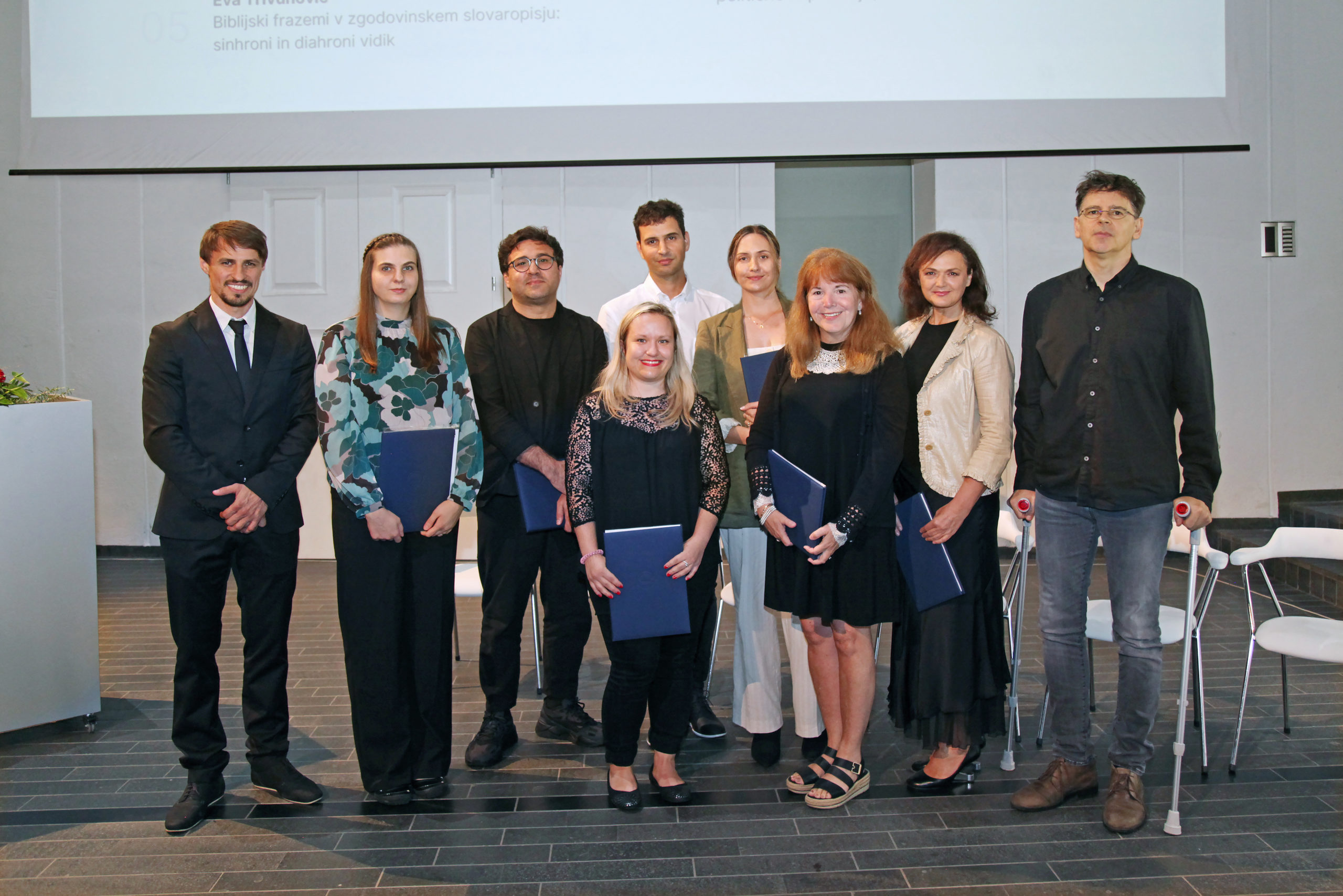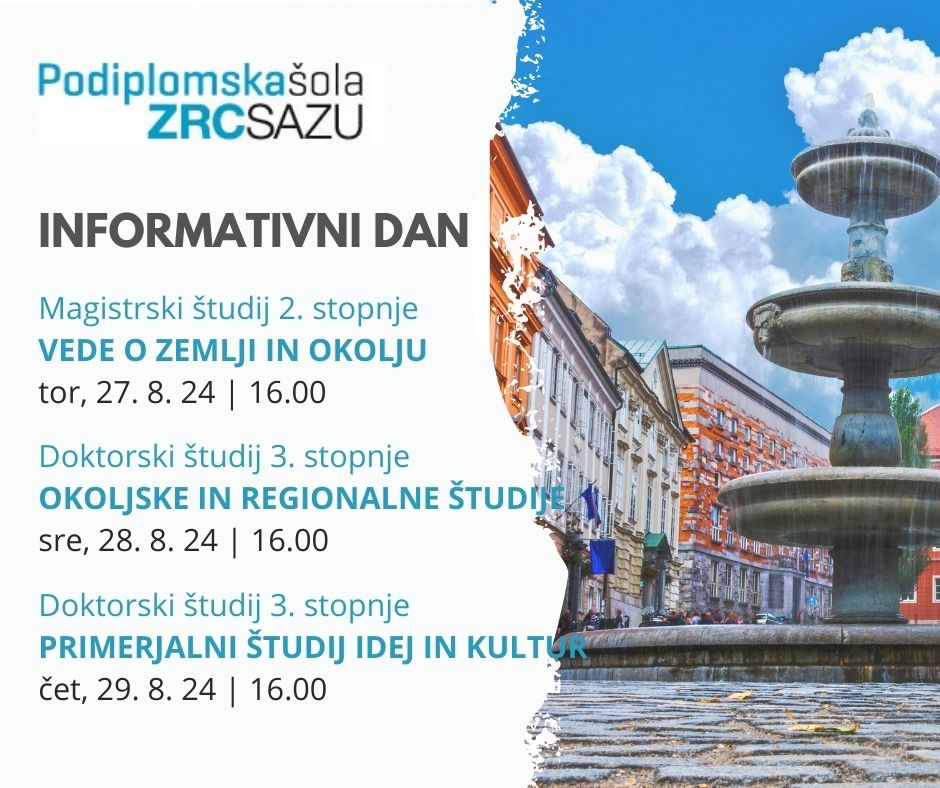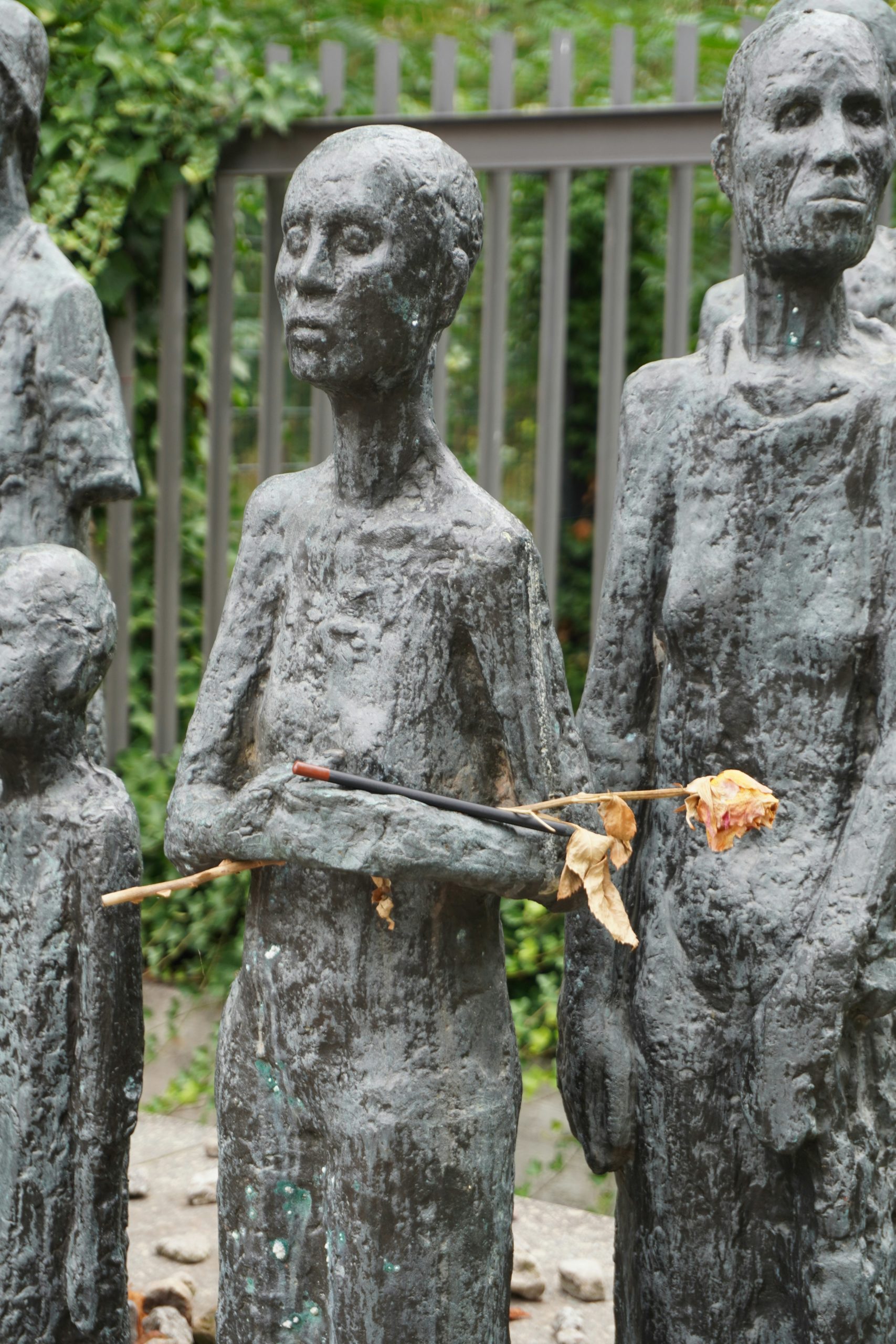You are invited to attend the presentations of doctoral dissertation topics that are currently being developed or nearing completion within the framework of the 3rd Cycle Doctoral Programme in Comparative Studies of Ideas and Cultures at the Postgraduate School ZRC SAZU.
Attendance by students enrolled in the Doctoral Programme in Comparative Studies of Ideas and Cultures at the presentations of their peers is mandatory to fulfil the study requirements of Research Seminar I (in the 1st year) and Research Seminar II (in the 2nd year). Attendance will be recorded on an attendance list.
On Tuesday, 10 September 2024, at 5 pm, Maruša Žibred will present her doctoral dissertation topic under the module Lexicology, Lexicography, Grammar, with the working title:
The Category of Definiteness in Adjectives from a Linguistic-Historical and Historical-Lexicographical Perspective.
Summary
Supervisor: Asst. Prof. Dr Alenka Jelovšek
Co-supervisor: Asst. Prof. Dr Andreja Legan Ravnikar
Committee: Assoc. Prof. Dr Kozma Ahačič, Dr Špela Petric Žižić, Research Associate, and Assoc. Prof. Dr Natalija Ulčnik.
On the same day, at 6 pm, under the same module, Pia Rednak will present her doctoral dissertation topic with the working title:
Phonetic Phenomena at the Word or Morpheme Boundary in Loanwords in Slovene.
Summary.
Supervisor: Assoc. Prof. Dr Helena Dobrovoljc
Co-supervisor: Dr Janoš Ježovnik
Committee: Assoc. Prof. Dr Kozma Ahačič, Asst. Prof. Dr Tina Lengar Verovnik, and Prof. Dr Hotimir Tivadar.
On Monday, 16 September 2024, at 4 pm, Lucija Mandić will present the conclusions of her doctoral dissertation under the module Literature in Context, titled:
Distant Reading of Slovene Narrative Prose of the Long 19th Century in the Context of Socio-Cultural Processes.
Summary.
Supervisor: Asst. Prof. Dr Andrejka Žejn
Co-supervisor: Asst. Prof. Dr Monika Deželak Trojar
Committee: Asst. Prof. Dr. Jernej Habjan (in place of committee memberProf. Dr. Marko Juvan), Prof. Dr Katja Mihurko, and Assoc. Prof. Dr Tomaž Erjavec.
Also on Monday, 16 September, at 5 pm, under the module Cultural History, Vilja Lukan will present the conclusions of her doctoral dissertation titled:
Musealisation of Difficult Heritage: The Ljubelj Camp at the Intersection of Museology and Memory Studies.
Summary.
Supervisor: Asst. Prof. Dr Saša Poljak Istenič
Co-supervisor: Prof. Dr Oto Luthar
Committee: Prof. Dr Maja Godina Golija, Dr. Martin Pogačar, Research Associate, and Assoc. Prof. Dr Petra Svoljšak.
On Tuesday, 17 September 2024, at 4 pm, Lucija Kous will present her doctoral dissertation topic under the module Millennia Between the Adriatic and the Danube:
Small Roman Finds from the Ljubljanica River.
Summary.
Supervisor: Assoc. Prof. Dr Janka Istenič
Committee: Dr Boštjan Laharnar, Senior Research Fellow (National Museum of Slovenia), Asst. Prof. Dr Edisa Lozić, and Assoc. Prof. Dr Benjamin Štular (in place of committee member Assoc. Prof. Dr Jana Horvat).
On the same day, Tuesday, 17 September, at 5 pm, Tjaša Cankar will present her doctoral dissertation topic, which she will be working on under the module Cultural History:
Western-centrism in Feminist Knowledge Production: Gender equality plans (GEPs) as a framework to devise gender equality measures in post-socialist SouthEast Europe.
Summary.
Supervisor: Asst. Prof. Dr Jovana Mihajlović Trbovc
Committee: Prof. Dr Milica Antić Gaber, Assoc. Prof. Dr Ana Hofman (in place of committee member Prof. Dr Tanja Petrović), and Assoc. Prof. Dr Mirjam Milharčič Hladnik.
On Wednesday, 18 September 2024, at 5 pm, Uroš Bonšek will present his doctoral dissertation topic under the module Lexicology, Lexicography, Grammar:
The Role of Terminological Agreement in Terminology.
Summary
Supervisor: Asst. Prof. Dr Mojca Žagar Karer
Committee: Assoc. Prof. Dr Nataša Jakop (in place of committee member Prof. Dr Andreja Žele), Asst. Prof. Dr Mateja Jemec Tomazin, and Asst. Prof. Dr Boštjan Slak (Faculty of Criminal Justice and Security, University of Maribor).
The presentations will take place in the conference room at ZRC SAZU, Novi trg 2, 1st floor, Ljubljana.
All interested parties are welcome!











